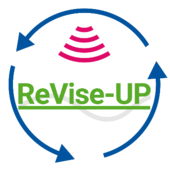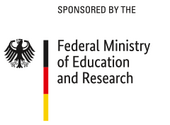At 3.2 million tonnes per year, post-consumer packaging waste represents the most significant plastic waste stream in Germany. Despite progress to date, mechanical plastics recycling still has significant potential for improvement: In 2021, only about 27 Ma.-% (1.02 million Mg/a) of post-consumer plastics could be converted into recyclates, and only about 12 Ma.-% (0.43 million Mg/a) served as substitutes for virgin plastics (Conversio Market & Strategy GmbH, 2022).
So far, mechanical plastics recycling has been limited by the high effort of manual material flow characterisation, which leads to a lack of transparency along the value chain. During the ReVise concept phase, it was shown that post-consumer material flows can be characterised automatically using inline sensor technology. The subsequent four-year ReVise implementation phase (ReVise-UP) will explore the extent to which sensor-based material flow characterisation can be implemented on an industrial scale to increase transparency and efficiency in plastics recycling.
Three main effects are expected from this increased data transparency. Firstly, positive incentives for improving collection and product qualities should be created in order to increase the quality and use of plastic recyclates. Secondly, sensor-based material flow characteristics are to be used to adapt sorting, treatment and plastics processing processes to fluctuating material flow properties. This promises a considerable increase in the efficiency of the existing technical infrastructure. Thirdly, the improved data situation should enable a holistic ecological and economic evaluation of the entire value chain. As a result, technical investments can be used in a more targeted manner to systematically optimise both ecological and economic benefits.
Our goal is to fundamentally improve the efficiency, cost-effectiveness and sustainability of post-consumer plastics recycling.
Partners
Deutsches Forschungszentrum für Künstliche Intelligenz GmbH Deutsches Institut für Normung e. V. Human Technology Center der RWTH Aachen University Hündgen Entsorgungs GmbH & Co. KG Krones AG Kunststoff Recycling Grünstadt GmbH SKZ – KFE gGmbH STADLER Anlagenbau GmbH Wuppertal Institut für Klima, Umwelt, Energie gGmbH PreZero Recycling Deutschland GmbH & Co. KG bvse - Bundesverband Sekundärrohstoffe und Entsorgung e. V. cirplus GmbH HC Plastics GmbH Henkel AG Initiative „Mülltrennung wirkt“ Procter & Gamble Service GmbH TOMRA Sorting GmbH


